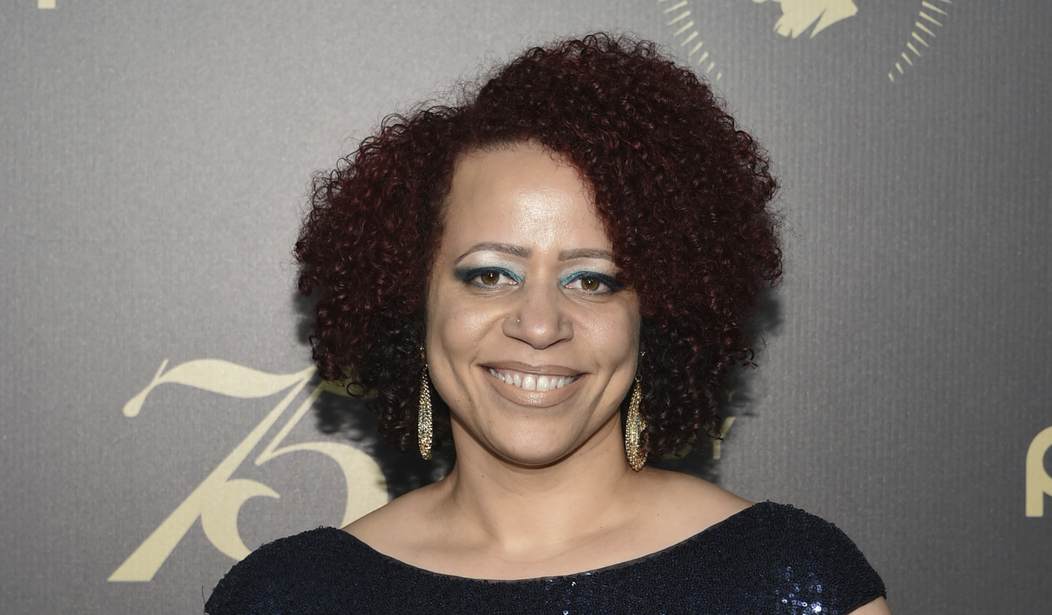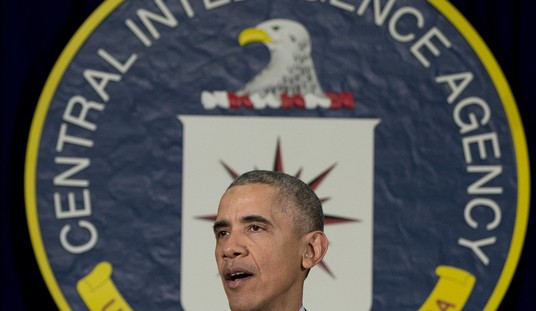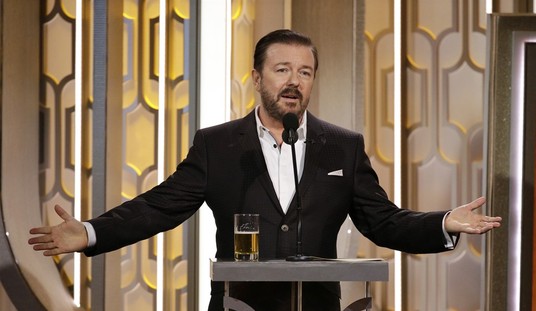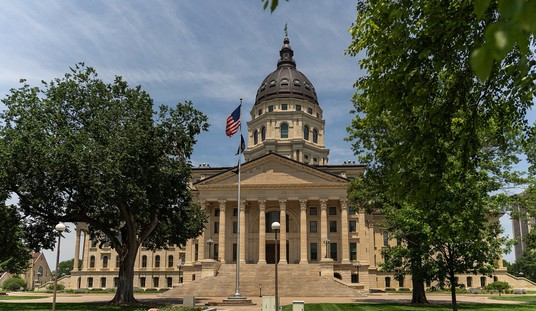“I SEE MY WORK AS FORCING US TO CONFRONT OUR HYPOCRISY, FORCING US TO CONFRONT THE TRUTH THAT WE WOULD RATHER IGNORE.”
This is the introductory statement on New York Times Magazine staff writer and 1619 creator Nikole Hannah-Jones’ website. It always amazes me that people who talk about confronting “truth” and “hypocrisy” rarely perform this type of introspection on themselves.
Parents across the country are fighting a battle for the minds and souls of their children. Parents are being maligned, targeted, and told they have no say in what and how their children should be learning, and they are rightfully upset, pushing back, and demanding accountability from the arrogant, bloated school boards and teachers unions that continue to lie about what they are teaching, and deny the parents the right to oppose it.
Former Secretary of State Mike Pompeo tweeted that he thinks parents should decide what their children are taught. Hannah-Jones decided to focus her segregated lens on him to grandstand about what she thinks about this right to school choice.
Believe it or not, it’s not just parents who pay for public schools and not just parents who have a vested interest in public schools. Public schools are a common good designed to create an informed citizenry in a multiracial democracy — two things I know you abhor. pic.twitter.com/yvsJpjfb10
— Ida Bae Wells (@nhannahjones) October 6, 2021
Believe it or not, it’s not just parents who pay for public schools and not just parents who have a vested interest in public schools. Public schools are a common good designed to create an informed citizenry in a multiracial democracy — two things I know you abhor
First of all, why is everything about multiracial democracy? When people are properly educated, this takes care of itself. Equality of opportunity should be the focus, not Equity for “marginalized” races. It’s a formula that will continue to yield the fruit of division as well as build a crop of stupid people.
Her first assessment was right; an “informed citizenry” is definitely important, and the very thing that public schools no longer deliver. Instead, children are being taught about 57 genders, sex acts at 5-years-old, and how racist the American system is. We know that last one is right up Hannah-Jones alley, but it is not what should comprise an education, and it certainly does not create an informed citizen, because it only represents one point of view, and not necessarily an accurate one at that. What does it create? A confused, deviant citizen, maybe. An informed citizen? Not so much.
Hannah-Jones continues her rant, thusly:
Further, parents who think they alone should decide what children learn are free to homeschool. But those of us with kids in public school actually want professional educators and subject-matter experts to determine curricula.
And they’re never talking about Black, Latino, Indigenous, Asian or LQBTQ parents when they say this.
Hannah-Jones rightly received push back on this. After all, if all of these individual groups had more choice in the schools their children could attend, they wouldn’t be subject to poor educational outcomes or bullying, would they? They would have the freedom to locate a school that specialized and understood their child’s particular needs. Freedom that, thanks to political zoning and teacher unions greed, these parents do not currently have.
A Neal McClusky quote tweeted Hannah-Jones’ take, and agreed with this aspect: the state wants control of your children. You alone don’t have a vested interest in your offspring, and it’s best that you not forget it. McClusky then asserts the need for school choice in his agreement.
She’s right: Public schools are about collective shaping of minds through government power. Why we need #schoolchoice now.
Hannah-Jones decided to quote tweet McClusky to reinforce her own pretzel logic.
You already have choice: Homeschool or pay tuition. https://t.co/7LNyUIqomv
— Ida Bae Wells (@nhannahjones) October 7, 2021
Like her parents? Nikole Sheri Hannah was born to a Black father and a White mother. The family moved to Waterloo, IA, which, compared to the rest of Iowa, was probably the most racially diverse. According to Census data, Blacks represent about 4 percent of the entire population of Iowa, and they represent 16 percent of the population of Waterloo.
According to Influence Watch (which pulls from Hannah-Jones’ speeches and writings), her parents took advantage of the opportunity to have their children enrolled in an affluent, majority white school on the other side of town. What I know from desegregation from that time, it costs her parents nothing. Had her parents not chosen to focus on her education and give her the best possible choice, would Hannah-Jones be sitting on her high horse and looking down her nose at minority and low-income parents who want that same opportunity?
She began her education in what she described as a “low-income school” that her mother said was “distressingly chaotic.” But in 1982, when Hannah-Jones was in second grade, her parents enrolled her and her older sister in one of the city’s “whitest, richest schools, thinking it would provide the best opportunities for us.” The two young girls took a one-hour bus ride to a school across town as part of what Hannah-Jones has described as Waterloo’s “voluntary desegregation program, which allowed some black kids to leave their neighborhood schools for whiter, more well off ones on the west side of town.” [18]
She has written that the new school provided her an “academically stimulating” environment with “rigorous classes and quality instruction.” She has also noted the cultural exposure to homes where the parents of her classmates were “doctors and lawyers and scientists” was “world-expanding” and “helped me imagine possibilities, a course for myself that I had not considered before.” She credits the school with changing her life’s trajectory: “I have no doubt my parents’ decision to pull me out of my segregated neighborhood school made the possibility of my getting from there to here — staff writer for The New York Times Magazine — more likely.” [19]
She wrote this in The New York Times Magazine featured article, “Choosing a School for My Daughter in a Segregated City,” where she discussed the steps she and her husband took, and discussions they had to choose a school for their then 4-year-old daughter.
Note this: Hannah-Jones and her husband chose to move into a formerly ethnic bastion (Bedford Stuyvesant) that was becoming more and more gentrified. Why not move into Harlem, or another part of New York that represents “Blackness”? Interesting choice for a woman who pretends to be an expert on segregation and equity. From those discussions mentioned in the article about her child’s education, the Hannah-Joneses apparently surrounded themselves with the “middle class” gentry of parents who were able to outline certain choices and courses of action that she and her husband could take for their children.
Must be nice. I doubt that the store worker at her local market, or her housekeeper sits around in a latte klatch with their neighbors, and discuss the best option for their children’s education. They are too busy mustering up energy to do their jobs, make dinner for their families, and maybe get some rest.
In the NYT piece, Hannah-Jones talked about the entrenched segregation in the New York Public School system, and went way long about a rezoning effort that would have pushed children from one overcrowded, segregated school into the more “multicultural” (I hate that word) school district where her daughter attended.
After waxing eloquent about this, Hannah-Jones’ concluded:
True integration, true equality, requires a surrendering of advantage, and when it comes to our own children, that can feel almost unnatural. Najya’s first two years in public school helped me understand this better than I ever had before. Even Kenneth Clark, the psychologist whose research showed the debilitating effects of segregation on black children, chose not to enroll his children in the segregated schools he was fighting against. “My children,” he said, “only have one life.” But so do the children relegated to this city’s segregated schools. They have only one life, too.
So, her answer to changing this relegation to New York (or any city’s) segregated schools is not to give these parents and students options that she did nothing to earn in her own education, and options she is privileged to have for her child. Hannah-Jones knows that low-income parents do not have the money to pay for private or parochial schools. Her very own parents were given an opportunity that was free in order to foster her education, and like any smart parent, they jumped on it. Had the Hannahs not had this opportunity, would they have had the means to pay for parochial or private school? Would her mother have given up work in order to homeschool Hannah-Jones and her siblings?
Many low-income families are dual wage earners, so one of those earners being able to remove themselves from the workplace to homeschool is also not an option. Yet, because Hannah-Jones had the agency, ability and most importantly, choice, to decide where her daughter was able to go to school, and whether her daughter would stay at this school should circumstances change, she can snootily look down her nose on people who are demanding that same agency to make similar choices.
The hypocrisy is not surprising from this one, but truly stunning.
How woke of you, prompting a system that prevents impoverished minorities from having a choice that is currently only reserved for the rich.
— M0ser (@TM0s41) October 7, 2021
Mighty woke, for sure. Hannah-Jones must be tapping into her white privilege genetic roots. She is definitely showing her elitist privilege in spouting this claptrap. But, from a woman who fought the University of North Carolina Chapel Hill to attain tenure, and then refused it simply to prove a point, I would not expect anything less.















Join the conversation as a VIP Member